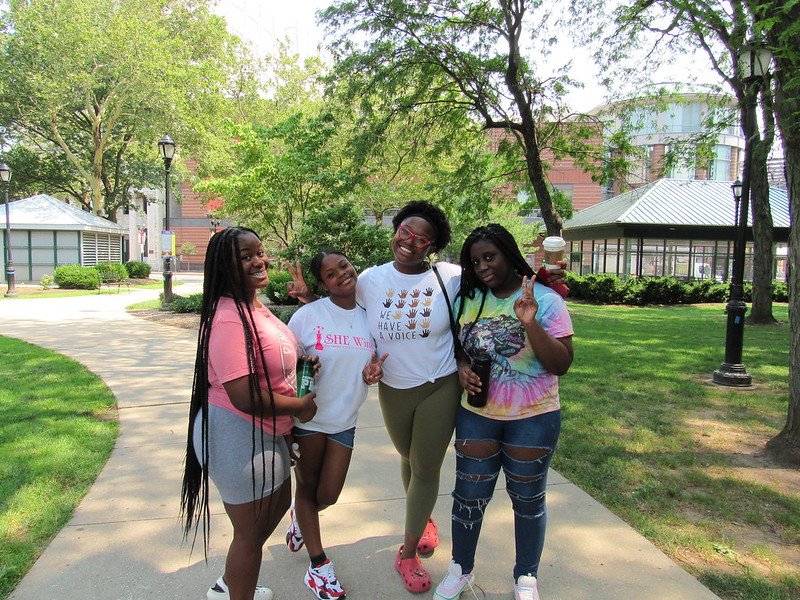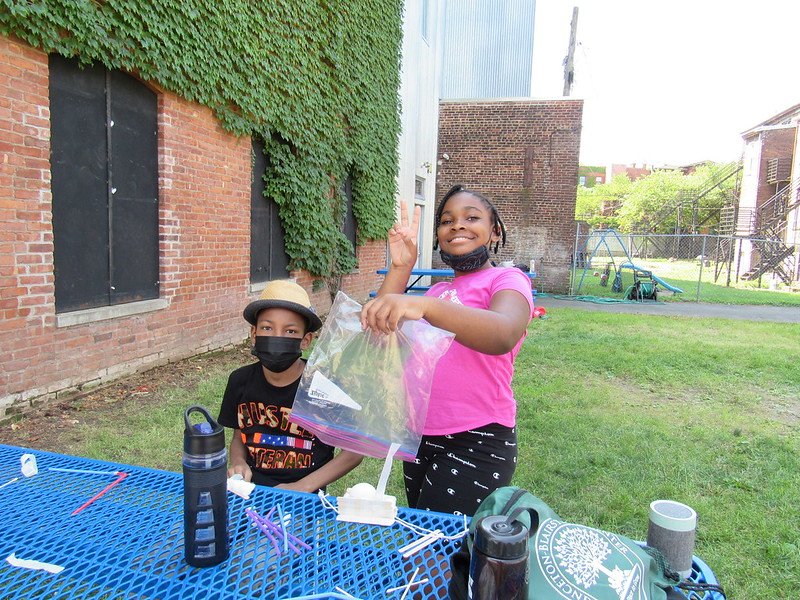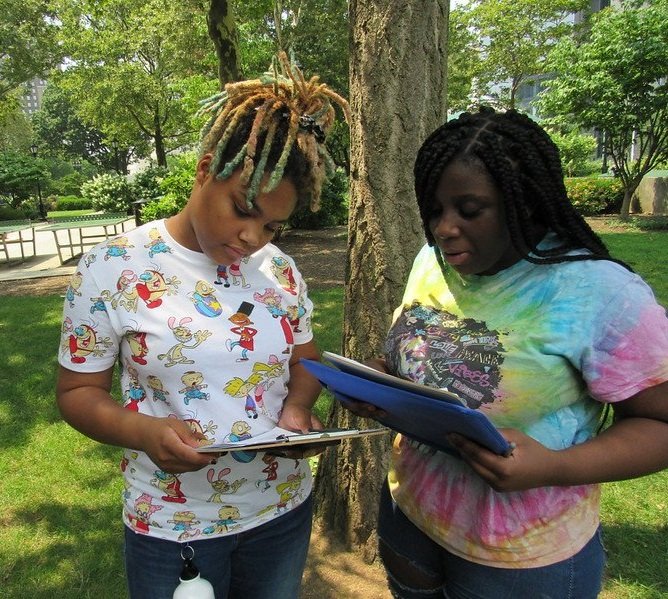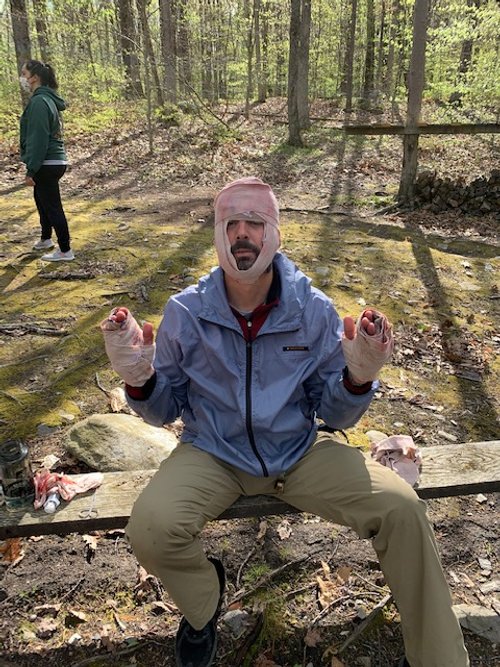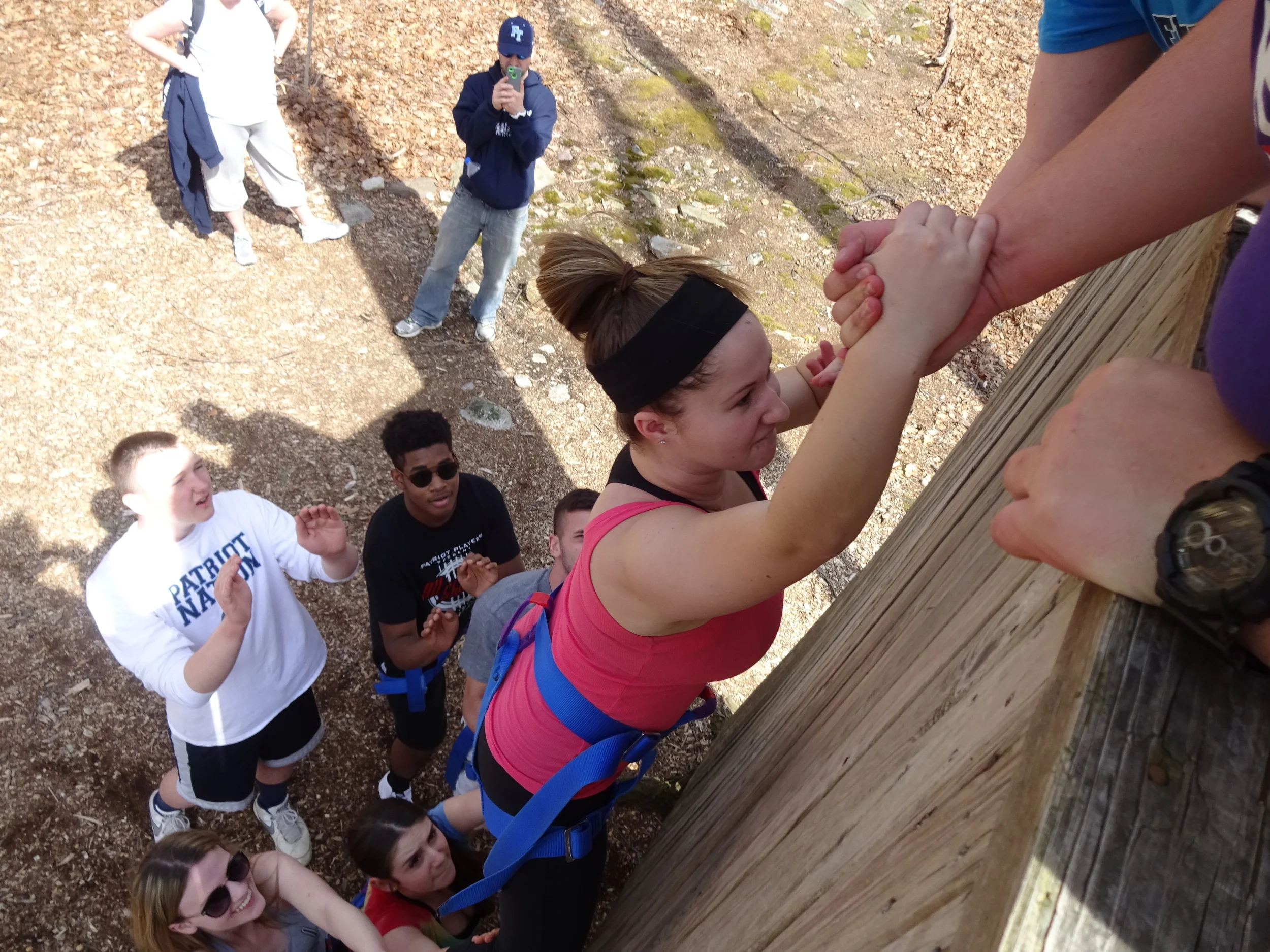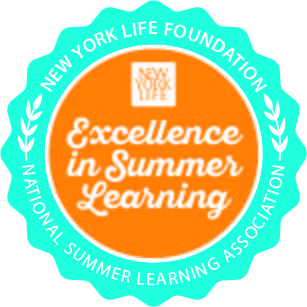STEM, SEL, & PBC
/Sometimes it seems like there is a “day” for everything. There’s Pi Day, National Panda Day, National Puppy Day, National Potato Chip Day… we could go on. However, there are two events that the Princeton-Blairstown Center is especially interested in celebrating this month!
Four Summer Bridge participants pose for the camera.
SEL Day, celebrated on March 11, is a way to celebrate the importance of social emotional learning (SEL). Social emotional learning is a mainstay of the Center’s programming and is woven into every single activity and course. We believe it is important to incorporate social emotional learning into our programming because providing SEL programming allows youth to practice and become competent in social-emotional skills such as learning how to identify and process their emotions, become more self-aware, and develop compassion and empathy for others. To showcase and promote our SEL curriculum and celebrate SEL Day, we shared pictures, videos, and articles on all our social media that relate to social emotional learning. We even share ALL our resources, including our SEL curriculum for middle- and high school students — for free. You can find all of our SEL resources here.
March is also NJ Stem Month! This month, all organizations in the state are called upon to showcase and celebrate their work in STEM. The Center has been actively participating in the month-long celebration of all things STEM by posting photos, stories, and videos on social media using the hashtag: #NJSTEMMonth. You can find all of our #NJSTEMMonth posts on Facebook, Instagram, or Twitter!
Summer Bridge participants work together on an assignment.
All our programming has SEL and STEM elements, but we have one program in particular that really focuses on both SEL and STEM: the award-winning Summer Bridge Program, a one-week leadership and academic enrichment program that focuses on developing social emotional learning skills, lessening summer learning loss, and helping students create strong relationships with their peers and with adults. During the week-long program, students are divided into small groups of 10-12 and paired with a trained facilitator and a school/agency chaperone. Each group spends time engaged in hands-on Literacy, STEM, and SEL activities. Traditionally, the program is held at our campus in Blairstown, but with a global pandemic we decided to bring the program to the communities where our students live in 2021 and 2022.
Two Summer Bridge participants collaborating.
The Center’s Summer Bridge Program is designed to serve youth from historically marginalized communities – free of charge. We realize that not everybody has the same access to resources and opportunities. This is our way of helping to provide quality SEL and STEM education to everybody!
Because we do want everybody to have a reason to celebrate SEL day and NJ STEM Month with us this March!


